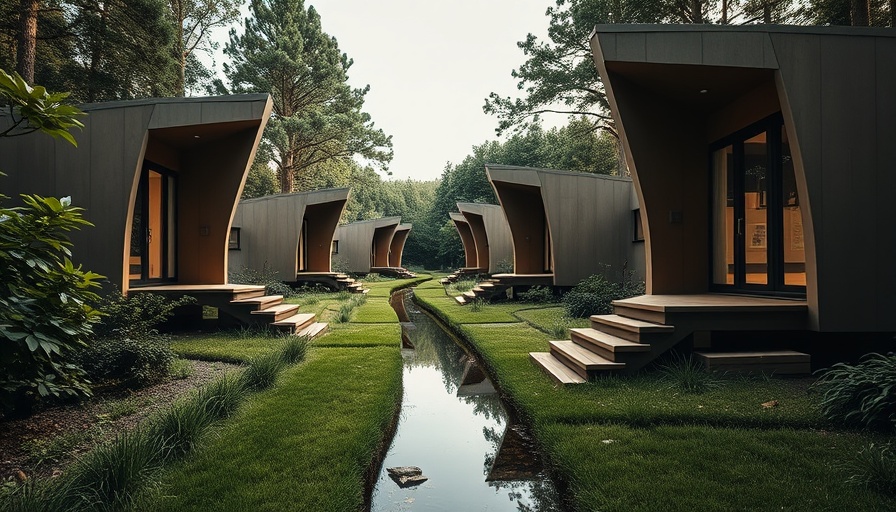
Exploring the Rise of Modular Homes in Addressing Housing Shortages
Modular homes have escalated from being seen as an unconventional solution to a mainstream answer for the housing crisis, particularly in urban settings where affordability becomes a primary concern. This transformation is underpinned by several evolving factors: a burgeoning housing demand, escalating construction costs, and significant technological innovations in building practices.
The Modular Advantage: Efficiency and Sustainability
As articulated by Cobus Odendaal, CEO of Lew Geffen Sotheby’s International Realty, modular homes are built to the same robust standards as traditional homes, with significant benefits tied to their construction methods. Specifically, modular construction occurs in factory settings where efficiency can be maximized, yielding faster completion times and often at lower costs when compared with site-built alternatives. This is remarkably advantageous in a country like South Africa, where many face increasing housing prices that continuously exceed income growth.
Moreover, the sustainability angle cannot be overlooked. Modular homes are typically fabricated using eco-friendly materials and technologies designed to minimize environmental impact. This leans into the global demand for greener building practices, as evidenced by Tesla's entry into the modular market with homes that integrate renewable energy features.
The Financial Benefits of Modular Homes
The benefits of cost savings are paramount for prospective homeowners and property investors alike. Comparatively lower labor expenses, reduced waste, and expedited construction timelines mean that modular homes can often be more affordable, making them attractive to first-time buyers and those seeking luxury in a cost-effective package. Indeed, each completed module is transported to the site, where it is assembled, ready for occupation in record time.
Challenges Facing Modular Construction
Despite the promising advantages, the modular construction sector still grapples with hurdles. Stigma from the association of modular homes with lower quality mobile homes persists, potentially deterring more traditional homebuyers. Furthermore, the financing of modular projects remains complicated due to concerns over upfront capital and project completion risks. These financial concerns necessitate policy reforms to enhance funding access and credibility for modular construction.
Embracing Modular Homes for Community Development
Amidst broader market dynamics, adopting modular construction can also reshape urban planning. Cities challenged by rapid growth and population influx can utilize modular homes to quickly scale housing solutions. For instance, modular homes have been identified as a feasible method to address homelessness, capable of providing temporary housing that can also transition into permanent solutions.
The Future of Modular Housing: An Inclusive Approach
Looking ahead, expansion in the modular sector could represent a significant shift in how society approaches housing. By integrating innovative financing models and public policy support, we could harness the potential of modular homes to alleviate current housing challenges. This movement towards modular construction is not just about building houses; it's about fostering inclusive communities that meet diverse residential needs while preserving the integrity of our environment.
 Add Row
Add Row  Add
Add 




Write A Comment